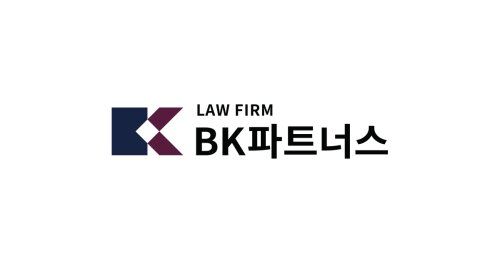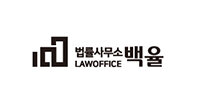Best Native People Lawyers in Seo-gu
Share your needs with us, get contacted by law firms.
Free. Takes 2 min.
List of the best lawyers in Seo-gu, South Korea
About Native People Law in Seo-gu, South Korea
In South Korea, the term "Native People" generally refers to individuals and communities traditionally inhabiting specific regions, often with unique cultural or social identities. However, unlike some countries that have legally defined indigenous populations and corresponding legal frameworks, South Korea’s situation is more nuanced. In Seo-gu, a district located in key metropolitan centers such as Busan, Incheon, or Daejeon, Native People are recognized more through cultural heritage and historical settlement than through distinctive legal status. Issues concerning Native People in Seo-gu may involve the recognition of cultural heritage, land use, traditional practices, and local autonomy within the legal system.
Why You May Need a Lawyer
Legal situations that arise concerning Native People in Seo-gu can be complex due to overlapping areas of national, local, and customary law. Some common scenarios where seeking a lawyer could be helpful include:
- Disputes concerning land ownership, use, or development affecting culturally significant areas
- Problems accessing government programs or benefits linked to traditional status or cultural heritage
- Issues preserving traditional practices, ceremonies, or cultural artifacts in the face of urban development
- Conflicts with local or national agencies regarding recognition of cultural or historical rights
- Challenges related to participation in local governance or representation of Native People’s interests
- Discrimination or breaches of equality and human rights involving Native identities
- Education matters, such as language preservation or access to heritage-based curriculum
Having an experienced lawyer helps ensure that your rights are protected, particularly when cases involve negotiation with government bodies, interpretation of statutes, or the assertion of traditional customs in legal proceedings.
Local Laws Overview
While South Korea does not have a legal category for indigenous people as seen in some countries, legal mechanisms exist to protect cultural heritage and certain collective rights.
- South Korea’s Cultural Heritage Protection Act supports the preservation and management of tangible and intangible cultural sites and practices, including those linked to Native communities.
- Local governments in Seo-gu may designate specific festivals, sites, or practices as protected, offering material or administrative support to community members, though this falls short of conferring official indigenous status.
- Land rights disputes are handled under Korea’s civil law system, but traditional ties or long-term occupation can sometimes be presented as evidence in disputes or negotiations.
- Anti-discrimination laws, including the National Human Rights Commission Act, provide some remedies for violations based on cultural or ethnic background.
- Local administrative procedures allow for community input in the management or redevelopment of historically significant areas, though the extent of influence may vary.
Understanding which aspects of your circumstances fall under national versus local law is important, and a lawyer can help guide you effectively through administrative and judicial processes.
Frequently Asked Questions
Who are considered Native People in Seo-gu, South Korea?
Native People in Seo-gu are generally those whose families have lived in the area for generations, often maintaining traditional customs, local dialects, or social practices. There is no specific legal status for "Native People" under South Korean law.
Do Native People in Seo-gu have any special land rights?
South Korean law does not grant special land rights to Native People solely based on heritage. Land rights are governed by formal property laws, but local authorities may acknowledge historical claims when considering land use, especially for culturally significant sites.
Can Native People receive government support to preserve their cultural practices?
Yes, local and national programs exist to support cultural heritage preservation, including financial grants, heritage site protection, and official recognition of important traditions. Applications typically go through cultural heritage offices.
How can disputes over traditional land or cultural assets be resolved?
Disputes are generally addressed through the civil court system or, in some cases, through mediation arranged by local government offices focused on cultural affairs. Legal advice is recommended to navigate these processes.
Are there educational benefits for Native People in Seo-gu?
While there are no exclusive educational programs for Native People, schools may offer curriculum elements teaching local history and culture. Cultural organizations sometimes partner with schools to provide additional opportunities.
What legal protections exist against discrimination of Native People?
South Korea maintains anti-discrimination laws and operates the National Human Rights Commission, which investigates complaints related to discrimination based on culture, ethnicity, or heritage.
How can Native People participate in local decision-making?
Native People can join community councils or cultural organizations that advise local government, submit petitions, and take part in public hearings on issues affecting traditional sites or social interests.
Can foreigners married into Native communities access the same rights?
Rights in cultural matters often depend on residency and community recognition rather than legal status alone. However, legal rights concerning land, property, and civil matters are determined by residency and national laws.
What should I do if a construction project threatens a cultural site?
Contact the local cultural heritage office as soon as possible. You may request a review of the project’s impact and apply for heritage protection status for the site. Legal assistance may be required for urgent action or to challenge approvals.
Where can I get free or low-cost legal help regarding Native People’s issues?
Various public legal aid centers, civic organizations, and university legal clinics offer advice and may provide representation to individuals and communities with limited resources.
Additional Resources
If you are seeking more information or support related to issues facing Native People in Seo-gu, the following organizations can be helpful:
- Seo-gu District Office: Cultural affairs and local heritage departments often handle cultural preservation issues.
- Korean Legal Aid Corporation: Provides free or affordable legal advice and representation.
- National Human Rights Commission of Korea: Accepts complaints regarding discrimination and human rights violations.
- Local Universities: Many law schools or research centers run legal clinics or cultural heritage projects.
- Seo-gu Community Centers: Often provide information on local organizations supporting cultural and legal matters.
Next Steps
If you need legal assistance regarding Native People issues in Seo-gu, consider the following:
- Gather all relevant documents, such as property records, community recognition letters, and evidence of traditional practices or cultural significance.
- Contact the offices or organizations listed in the additional resources section above for information and possible referrals.
- Schedule a consultation with a lawyer who has experience in cultural heritage, land rights, or civil law relevant to your situation.
- If the issue is urgent, such as imminent construction on a cultural site, act quickly by notifying the local cultural heritage authority and seeking emergency legal help.
- Prepare to clearly explain your situation, your goals, and any previous attempts to resolve the matter.
Taking these steps will help you understand your rights and options, and ensure your interests are represented effectively when dealing with legal matters connected to Native People in Seo-gu, South Korea.
Lawzana helps you find the best lawyers and law firms in Seo-gu through a curated and pre-screened list of qualified legal professionals. Our platform offers rankings and detailed profiles of attorneys and law firms, allowing you to compare based on practice areas, including Native People, experience, and client feedback.
Each profile includes a description of the firm's areas of practice, client reviews, team members and partners, year of establishment, spoken languages, office locations, contact information, social media presence, and any published articles or resources. Most firms on our platform speak English and are experienced in both local and international legal matters.
Get a quote from top-rated law firms in Seo-gu, South Korea — quickly, securely, and without unnecessary hassle.
Disclaimer:
The information provided on this page is for general informational purposes only and does not constitute legal advice. While we strive to ensure the accuracy and relevance of the content, legal information may change over time, and interpretations of the law can vary. You should always consult with a qualified legal professional for advice specific to your situation.
We disclaim all liability for actions taken or not taken based on the content of this page. If you believe any information is incorrect or outdated, please contact us, and we will review and update it where appropriate.









